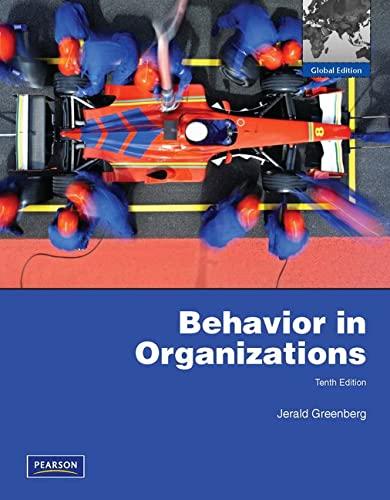Question
Who Am I? The Who Am I exercise is designed to get students to think about the worldview and perspective of other cultures based on
Who Am I?
The Who Am I exercise is designed to get students to think about the worldview and perspective of other cultures based on their histories. This is a role-playing exercise. Please choose one of the following:
?
we chose:
? Chinese NEW YEAR!
?
Using material from the text, attempt to place yourself in the shoes of the culture. The goal should be to identify cultural identity through actions and portrayals without explicitly stating who you are. Think about how to express the essential ideas of each culture without explicitly describing them. You can
- Need a quick script using "I" or "we" language but never sharing which culture it is.
- Present it to the rest of the class
- members of the group may take turns speaking, or you may elect one or two persons to present on behalf of the group)
- assign a scribe to write the relevant cultural attributes, actions & portrayals on the whiteboard.
- Include a transcript (your script) in the post (everyone in the group should contribute to the written post as usual).
In our class discussion we will:
Attempt to identify what country or culture each group is attempting to portray. Discuss how these portrayals (which are extrapolated based on what is known about that culture) might promote greater empathy and understanding.
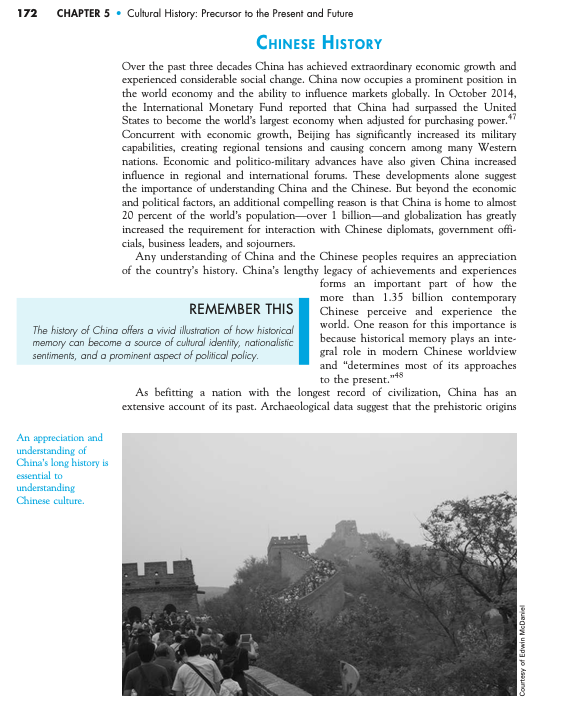
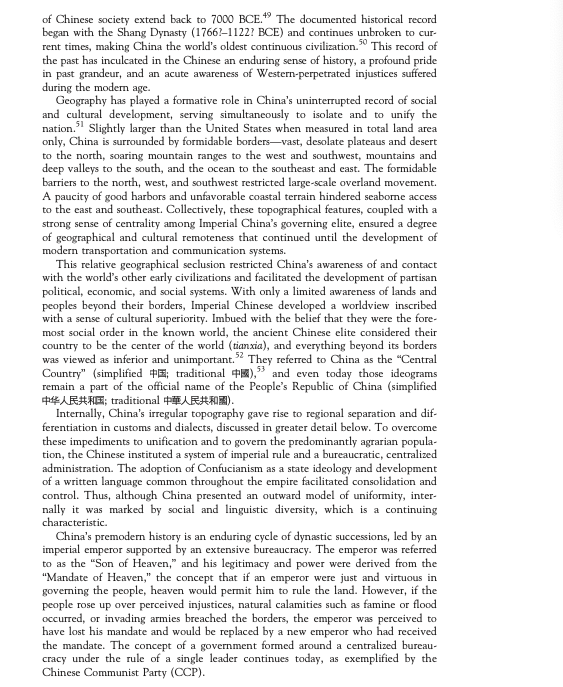
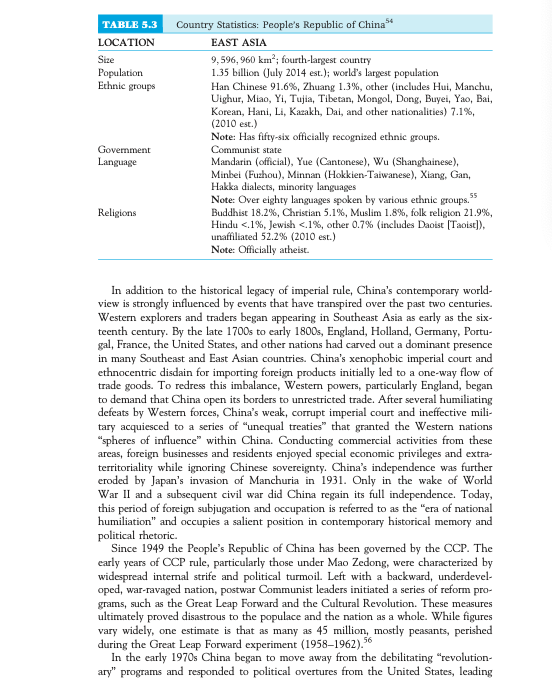
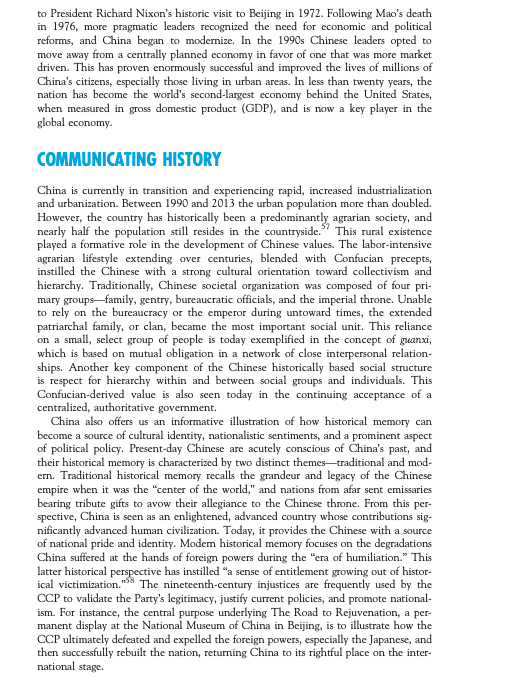
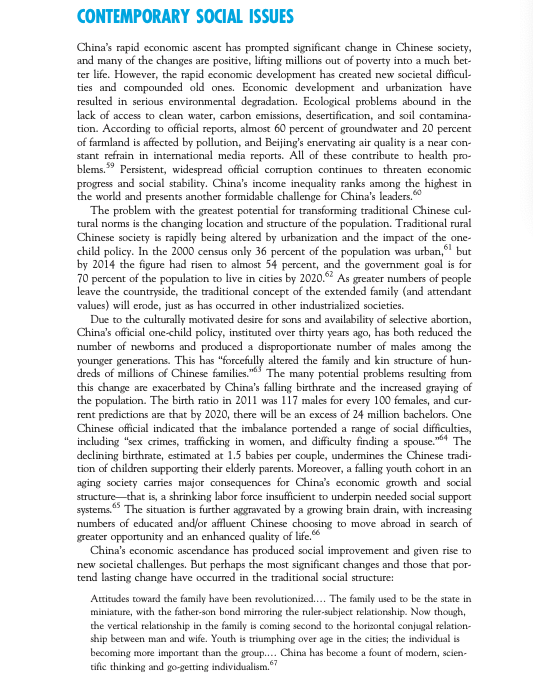
172 CHAPTER 5. Cultural History: Precursor to the Present and Future REMEMBER THIS The history of China offers a vivid illustration of how historical memory can become a source of cultural identity, nationalistic sentiments, and a prominent aspect of political policy. An appreciation and understanding of China's long history is essential to CHINESE HISTORY Over the past three decades China has achieved extraordinary economic growth and experienced considerable social change. China now occupies a prominent position in the world economy and the ability to influence markets globally. In October 2014, the International Monetary Fund reported that China had surpassed the United 47 States to become the world's largest economy when adjusted for purchasing power. Concurrent with economic growth, Beijing has significantly increased its military capabilities, creating regional tensions and causing concern among many Western nations. Economic and politico-military advances have also given China increased influence in regional and international forums. These developments alone suggest the importance of understanding China and the Chinese. But beyond the economic and political factors, an additional compelling reason is that China is home to almost 20 percent of the world's population-over 1 billion-and globalization has greatly increased the requirement for interaction with Chinese diplomats, government offi- cials, business leaders, and sojourners. Any understanding of China and the Chinese peoples requires an appreciation of the country's history. China's lengthy legacy of achievements and experiences forms an important part of how the more than 1.35 billion contemporary Chinese perceive and experience the world. One reason for this importance is because historical memory plays an inte- gral role in modern Chinese worldview and "determines most of its approaches to the present." As befitting a nation with the longest record of civilization, China has an extensive account of its past. Archaeological data suggest that the prehistoric origins understanding Chinese culture. 1148 Courtesy of Edwin McDaniel
Step by Step Solution
3.31 Rating (148 Votes )
There are 3 Steps involved in it
Step: 1
ANSWER Here is a possible script for the Who Am I roleplaying exercise where we are portraying the c...
Get Instant Access to Expert-Tailored Solutions
See step-by-step solutions with expert insights and AI powered tools for academic success
Step: 2

Step: 3

Ace Your Homework with AI
Get the answers you need in no time with our AI-driven, step-by-step assistance
Get Started


